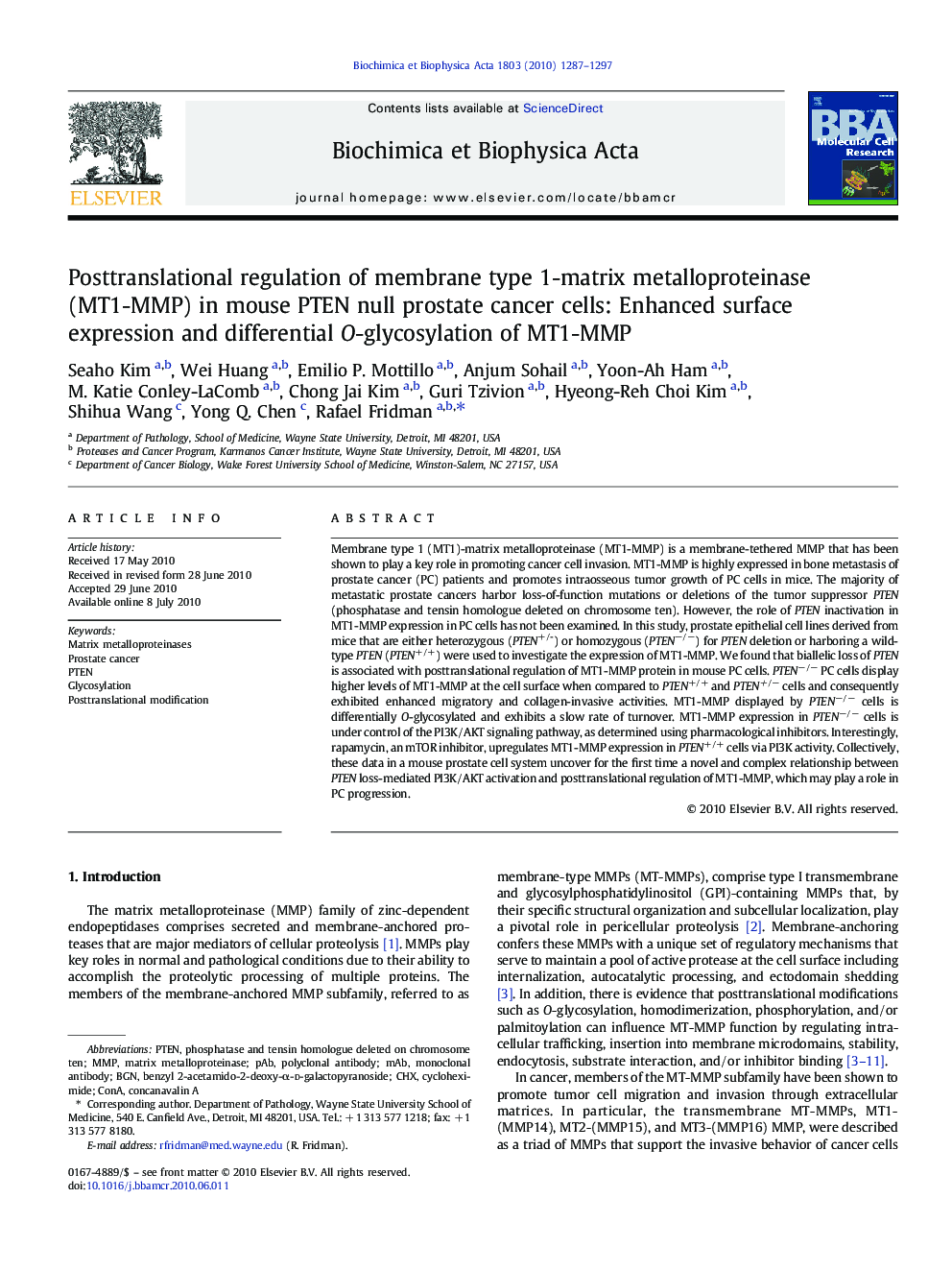| Article ID | Journal | Published Year | Pages | File Type |
|---|---|---|---|---|
| 1950977 | Biochimica et Biophysica Acta (BBA) - Molecular Cell Research | 2010 | 11 Pages |
Membrane type 1 (MT1)-matrix metalloproteinase (MT1-MMP) is a membrane-tethered MMP that has been shown to play a key role in promoting cancer cell invasion. MT1-MMP is highly expressed in bone metastasis of prostate cancer (PC) patients and promotes intraosseous tumor growth of PC cells in mice. The majority of metastatic prostate cancers harbor loss-of-function mutations or deletions of the tumor suppressor PTEN (phosphatase and tensin homologue deleted on chromosome ten). However, the role of PTEN inactivation in MT1-MMP expression in PC cells has not been examined. In this study, prostate epithelial cell lines derived from mice that are either heterozygous (PTEN+/-) or homozygous (PTEN−/−) for PTEN deletion or harboring a wild-type PTEN (PTEN+/+) were used to investigate the expression of MT1-MMP. We found that biallelic loss of PTEN is associated with posttranslational regulation of MT1-MMP protein in mouse PC cells. PTEN−/− PC cells display higher levels of MT1-MMP at the cell surface when compared to PTEN+/+ and PTEN+/− cells and consequently exhibited enhanced migratory and collagen-invasive activities. MT1-MMP displayed by PTEN−/− cells is differentially O-glycosylated and exhibits a slow rate of turnover. MT1-MMP expression in PTEN−/− cells is under control of the PI3K/AKT signaling pathway, as determined using pharmacological inhibitors. Interestingly, rapamycin, an mTOR inhibitor, upregulates MT1-MMP expression in PTEN+/+ cells via PI3K activity. Collectively, these data in a mouse prostate cell system uncover for the first time a novel and complex relationship between PTEN loss-mediated PI3K/AKT activation and posttranslational regulation of MT1-MMP, which may play a role in PC progression.
Research highlights►MT1-MMP protein but not mRNA is upregulated in PTEN null mouse prostate cancer cells. ►MT1-MMP is differentially O-glycosylated in PTEN−/− mouse prostate cancer cells. ►Mouse PTEN−/− but not PTEN+/+ cells display increased MT1-MMP stability and activity. ►MT1-MMP up-regulation in mouse PTEN−/− cells is mediated by the PI3K/AKT pathway. ►Rapamycin upregulates MT1-MMP protein expression in PTEN−/− cells via PI3K activity.
